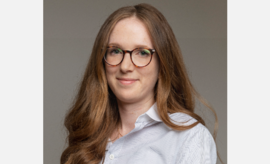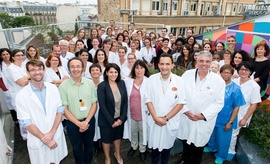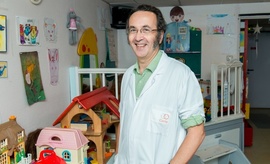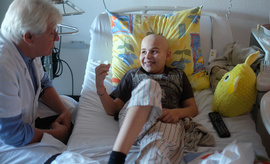Oncopediatrics
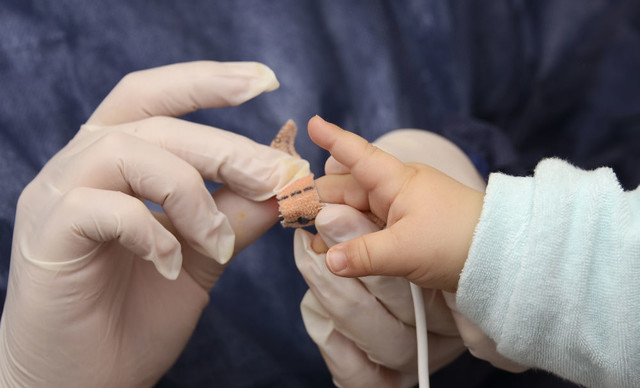
SIREDO: curing more children with cancer
Although pediatric and adolescent and young adult (AYA) cancer death rates have declined by nearly 70% over the past four decades, cancer remains the leading cause of death from disease among children. As a recognized expert in the treatment of and research into childhood, adolescent and young-adult cancers, Institut Curie created in 2017 a specific dedicated oncology center: SIREDO (“Soin Innovation Recherche en oncologie de l’Enfant, aDOlescent et de l’adulte jeune”). This center is the first of its kind in France, entirely dedicated to cancer in patients under 25 years of age, with a sole aim: to cure more young patients.
At SIREDO, the continuum research – care represent a unique opportunity to answer the critical unmet medical needs: understanding the tumor biology and plasticity and defining new diagnostic, prognostic and theranostic markers as well as new therapeutic approaches in order to cure more children with less sequels. It has 4 main activities:
- Care and clinical research
- Fondamental and translational research
- Transversal programs
- Biological resources
Care and clinical research
At the clinical level, SIREDO manages almost 300 new patients each year. Institut Curie is also the 2nd European center for patient’s recruitment, enrolling 180-200 patients in clinical trials each year, and is increasing its leadership PI positions. The center is particularly involved in clinical research projects and ancillary studies based on molecular and immunological profiling. SIREDO Medical division is connected to a strong regional network of hospitals for share cares: (réseau d'Ile-de-France d'hématologie oncologie pédiatrique (RIFHOP) within the regional CANPEDIF (Cancer Pediatric Ile de France) network as well as to the national and international pediatric cancer communities. The division includes one of the three dedicated adolescent and young adults’ unit in France. Each pediatrician is actively involved in dedicated national or European tumor groups. SIREDO benefits from surrounding expertise and facilities of Institut Curie.
The Centre’s expertise in the development of clinical research and early clinical trials has led to its recognition as a European ITCC (Innovative Treatment for Children with Cancer) center and to its designation as an INCa-labeled pediatric early-phase clinical trial center (CLIP2). The SIREDO medical division is also part of the European Reference Network (ERN) PaedCan, devoted to pediatric cancers.
Institut Curie is also the reference center for the Ewing sarcoma and Retinoblastoma international cancer genome consortium (ICGC) projects, and SIREDO members interacts closely with radiologists, ophthalmologists and pathologists from Institut Curie to provide children and AYA with best care options.
Fondamental and translational research
At the research level, basic and translational groups provide outstanding activities with an excellent internationally renowned scientific production. SIREDO benefits from strong scientific and medical national and international reputation and support. Teams of Institut Curie have made seminal discoveries and advances in the field of pediatric oncology. They discovered the EWSR1-FLI1 gene fusion in Ewing sarcoma, the SMARCB1 mutations in malignant rhabdoid tumors, the ALK mutations in neuroblastoma and more recently the BCOR-CCNB3 fusion and the SMARCA4 mutations in some Ewing-like sarcomas and thoracic sarcomas, respectively. The Curie scientists have also been very proactive in investigating the applications of discoveries in the clinical field. As examples we may quote works done on Ewing sarcoma, rhabdomyosarcoma, neuroblastoma, malignant rhabdoid tumors…
Transversal programs
At SIREDO, transversal programs hold a very center role. One of the key transversal programs developed is the pediatric precision medicine program. A national collaborative project MAPPYACTS (PI Birgit Geoerger, Gustave Roussy; coPI Gudrun Schleiermacher, Institut Curie) proposes in depth genetic analyses (whole exome-seq and RNA-seq) of refractory or relapsed childhood cancers for identification of molecular targets and to orient towards targeted therapies within the eSMART program or other biomarker-oriented early clinical trials). At Institut Curie, this program was developed thanks to the set-up of a state-of-the-art next generation sequencing platform within the previous SiRIC-Curie mandate. Since beginning of the MAPPYACTS program in April 2016, nation-wide more than 250 cases have been included, with over 120 cases analyzed at Institut Curie’s platforms with full comprehensive reports transmitted to clinicians thanks to a very close interaction between the Somatic Genetic Unit and the research labs. A new national program (MICCHADO, molecular and immunological characterization of high risk childhood cancer at diagnosis, treatment and follow-up) will be shortly launched with Curie as the coordinating center, performing both molecular and immunological characterization of high risk childhood cancers at diagnosis and with an aim to study clonal evolution based on circulating tumor DNA studies in 600 patients.
Biological resources
In the past years the Curie teams have made strong efforts on the development of relevant animal models for pediatric tumors in immunocompetent or deficient backgrounds. Indeed, this constitutes an essential step for the pre-clinical assessment of potential therapies to move a drug into the clinics. PDX and/or GEMM mice models have been developed for neuroblastoma, rhabdoïd tumors, retinoblastoma, medulloblastoma and Ewing sarcomas as well as for a variety of sarcomas. Strong collaborations have been set up with different surgical departments to receive appropriate materials to grow PDX, as much as possible in orthotopic location (including eye and brain), the development of which is supported by the European TORPEDO and ONTHETRRAC consortia as well as by specific donations to pediatric oncology research. All together, we have so far grafted over a hundred different primary and/or relapse tumors representing 37 PDX new models particularly relevant for testing new (combined) experimental treatments or to explore drug- or mutation-driven resistance mechanisms. In addition, more than 25 Ewing cell lines model, 30 Neuroblastoma and 10 ATRT models are available. Fish models for subtypes of Ewing-like tumors have also been set up in collaboration with the group of Jim Amatruda in Dallas.
Finally, SIREDO and the Genetic somatic unit (UGS) are under common leadership (Dr. Olivier Delattre) and work in a fully integrated manner for tumor molecular characterization. The UGS is the national reference center for tumor molecular analyses in a clinical setting. With more than 14000 Patients, 15000 tumor samples, 9700 germline samples and 70000 derived products (DNA, RNA, ctDNA…), the UGS constitute a major assert for fundamental and translational research development.
These resources and expertise makes SIREDO a center of reference for the continuum between research and care in pediatric, adolescents and young adults oncology.


